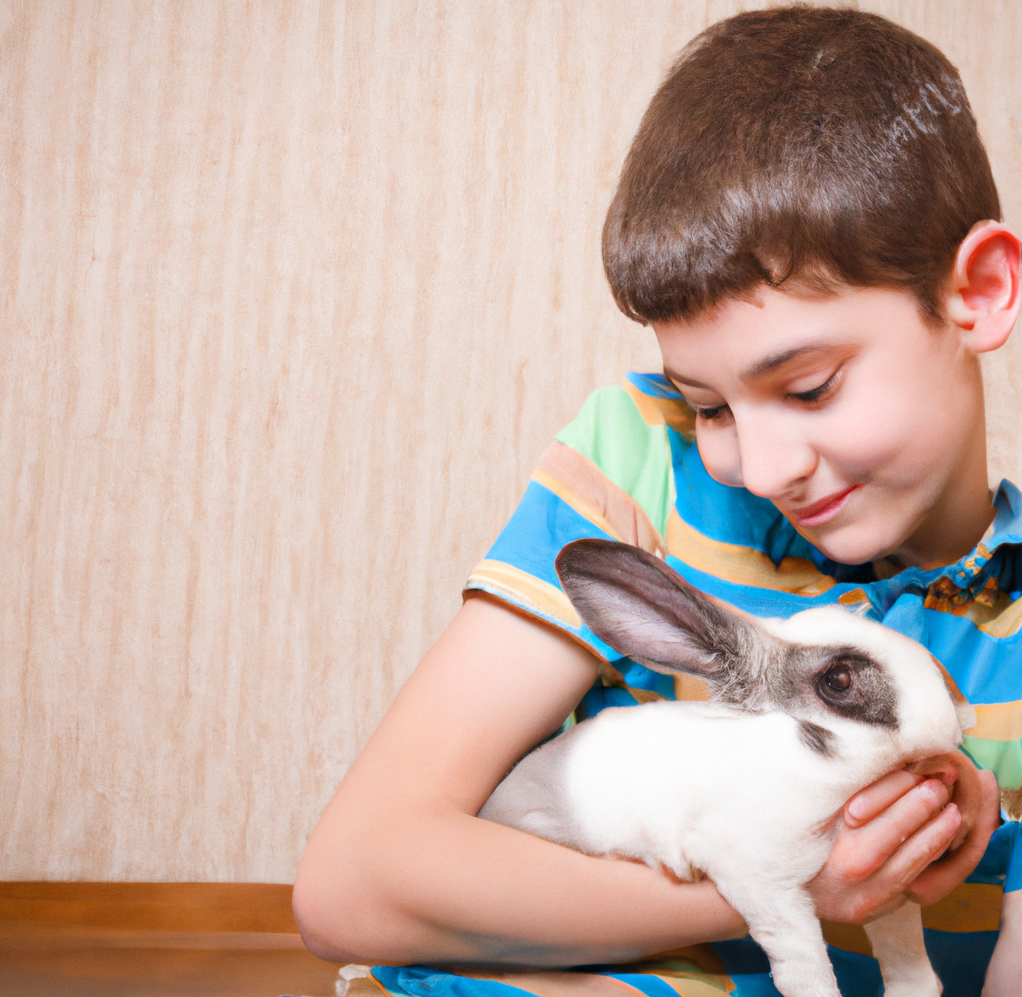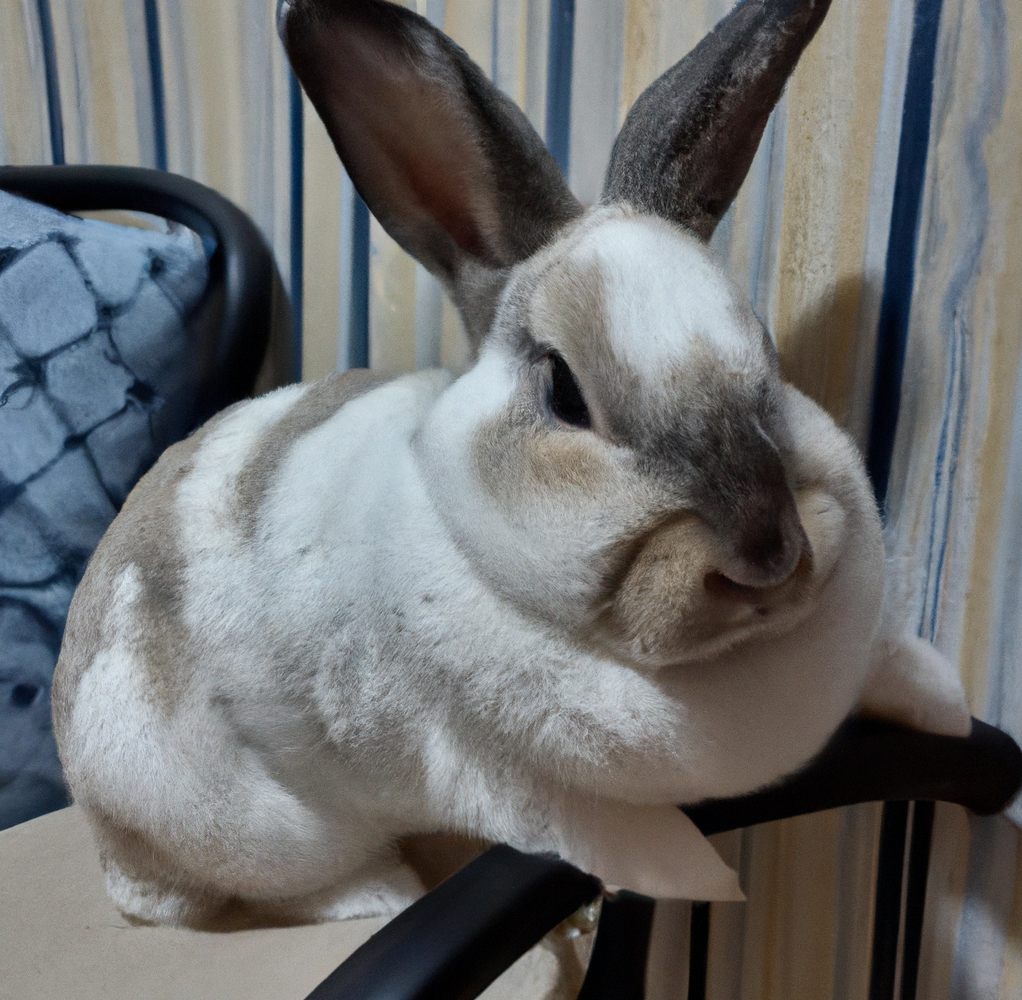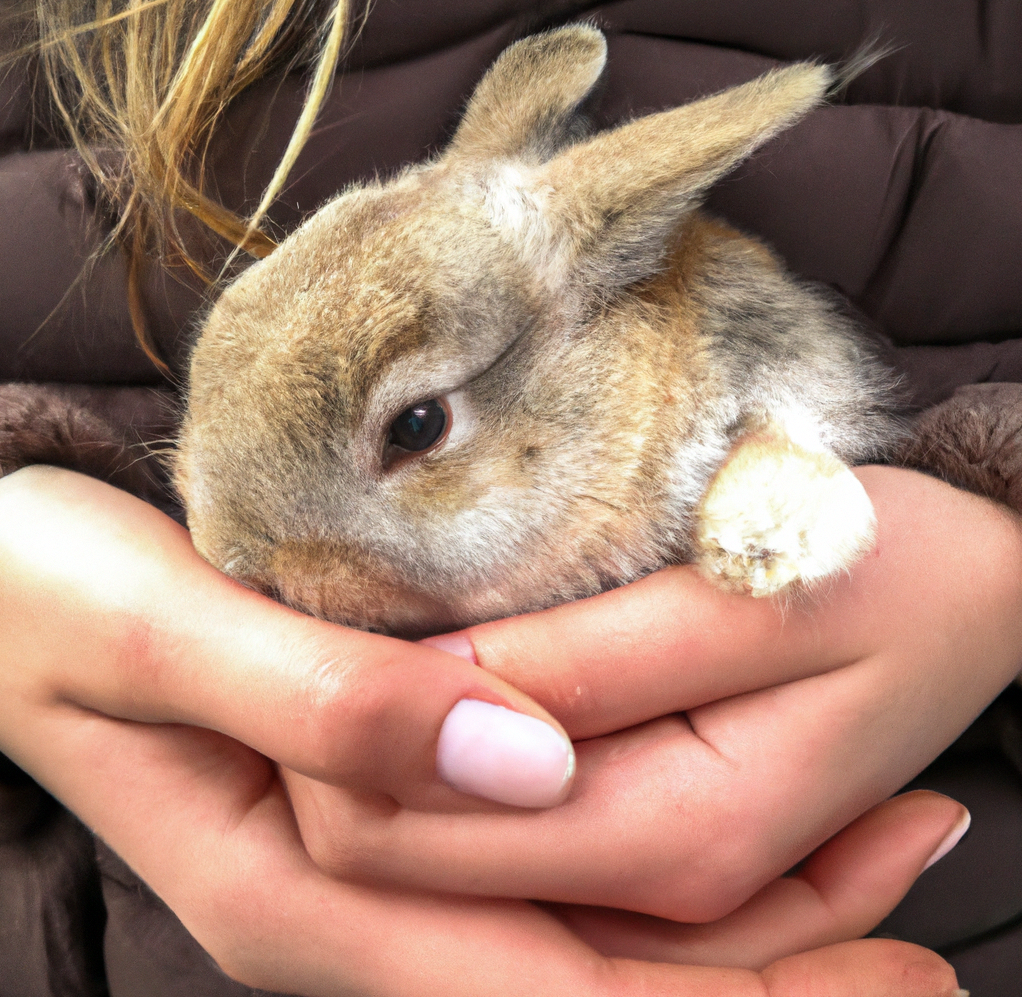Do rabbits have a favorite person? It’s a question many people have when it comes to pet rabbits. Rabbits are social animals and have the ability to form strong bonds with their owners. As such, it is possible for a rabbit to develop a preference for one particular person. This article will explore the potential for rabbits to form a bond with a favorite person, as well as how to tell if your rabbit might have a favorite human.
How to Tell if Your Rabbit Has Bonded to You
Having a pet rabbit can be an incredibly rewarding experience, and one of the most special aspects of owning a rabbit is forming a bond. Bonding with your rabbit can take time, but it is a special process that both you and your rabbit will enjoy. To know if your rabbit has bonded to you, there are several behaviors you can look out for.
First, if your rabbit is comfortable with being held and snuggled, then it is likely that they have bonded with you. Rabbits that have bonded with you will come over to you when you enter the room, and they may even nudge you or jump into your lap. Rabbits that are bonded to their owners may also do things like groom themselves while near you or lie down with you.
Another sign that your rabbit has bonded with you is if they show excitement when you come home. Your rabbit may run in circles or hop up and down when they see you. They may also vocalize when they are happy to be with you.
Finally, if you and your rabbit have formed a bond, then your rabbit will be more comfortable with your presence and allow you to touch them. Your rabbit may even enjoy being petted, brushed, or scratched.
If you are seeing some of these behaviors, then it is likely that your rabbit has bonded with you. Enjoy your special relationship and take the time to bond even more with your rabbit.
How to Strengthen the Bond Between You and Your Rabbit
The bond between a human and a rabbit is a special one. Rabbits are social animals and can form strong, loving relationships with their owners, but these bonds require lots of time and effort. Here are some tips for strengthening the bond between you and your rabbit.
First and foremost, spend time with your rabbit. Make sure to give them at least an hour of your undivided attention every day. Talk to your rabbit and allow them to explore the surrounding environment. This will help them become more familiar with you, and it will also provide mental stimulation.
Second, make sure your rabbit has plenty of space. Rabbits need enough room to move around and explore. If they are confined to a small space, they will be less likely to interact with you.
Third, provide your rabbit with lots of toys. Toys are important for rabbits because they help keep them mentally stimulated and entertained. Try to provide a variety of different toys, such as balls, tunnels, and boxes.
Fourth, give your rabbit plenty of treats. Treats are a great way to bond with your rabbit and show them that you care. Rabbits love fresh fruits and vegetables, so these are great treats to give.
Finally, be patient and understanding. Rabbits can take some time to warm up to people, so be patient and understanding. Allow your rabbit to get comfortable with you and don’t force them to do anything they don’t want to do.
By following these tips, you can strengthen the bond between you and your rabbit. Spend time with them, provide them with plenty of space and toys, give them treats, and be patient and understanding. With a little bit of effort and time, you and your rabbit can create a loving relationship that will last for years to come.
What to Do If Your Rabbit Shows Unusual Behaviour Around You

If your rabbit shows unusual behaviour around you, it is important to take the time to observe and understand why this is happening. Unusual behaviour can be caused by a variety of factors, including stress, pain, or illness. While rabbits can’t talk to us, it is important to pay attention to any changes in their behaviour so you can understand their needs.
First, it is important to look for signs of pain or illness. If your rabbit appears to be in pain, take them to the vet for an examination. If the vet confirms that your rabbit is in pain or ill, follow the vet’s instructions for treatment and care.
Second, it is important to look for signs of stress. Stress in rabbits can be caused by changes in environment, changes in routine, or changes in diet. Try to make any changes gradually, as sudden changes can be stressful for rabbits. Make sure your rabbit has plenty of space to move around, as well as toys and other objects to interact with. Ensure your rabbit has access to a hideaway or cozy spot, where they can feel safe.
Finally, if your rabbit’s unusual behaviour persists, consider consulting a qualified animal behaviourist. The behaviourist can help you identify the cause of your rabbit’s behaviour and provide practical tips for managing it. It is important to remember that all animals have their own unique personalities and that it can take time for them to adjust to changes. With patience, understanding, and help from a professional, you can help your rabbit feel safe and secure.
How to Include Your Rabbit in Everyday Activities
Rabbits can be wonderful, fun-loving companions, and they can easily be included in everyday activities. Here are some tips on how to include your rabbit in everyday activities.
1. Take your rabbit with you on errands: If you can, take your rabbit with you when you go out for errands like running to the store or going to the post office. This will help your rabbit get used to the sights and sounds of the outside world and provide them with some much-needed stimulation.
2. Let your rabbit explore indoors: Give your rabbit a designated room or area of the house to explore and let them roam around. This will help keep them entertained, and they may even find new and interesting places to hide.
3. Take them outside: Taking your rabbit outside is a great way to give them an opportunity to explore and get some fresh air. Make sure that the area is secure and free from predators, and supervise your rabbit at all times.
4. Play with your rabbit: Spend some time each day playing with your rabbit. This will help build a strong bond between you and your pet and help keep them entertained.
5. Give them something to chew on: Rabbits love to chew, so give them something to chew on, like a cardboard box or a piece of wood. This will help keep their teeth in good shape and provide them with some much-needed stimulation.
By following these simple tips, you can easily include your rabbit in everyday activities. Doing so will help keep them entertained and help them to stay healthy and happy.
Tips to Make Your Rabbit Feel More Comfortable Around You
1. Be gentle and patient: Rabbits can be easily scared, so it is important to be gentle and patient when around them. Treat them with respect and kindness, and avoid sudden movements or loud noises.
2. Let it come to you: Rabbits may be timid and take some time to get used to people. Let your rabbit come to you instead of trying to pick it up or chase it.
3. Learn about its behavior: Before you interact with your rabbit, take some time to learn about its behaviors and body language. This will help you understand how your rabbit is feeling and make it easier to predict its reactions.
4. Offer treats: Offering treats is a great way to make your rabbit feel more comfortable around you. Start off with small treats like fresh vegetables or hay, and gradually move to bigger treats like fruits, nuts, or seeds.
5. Bonding activities: Spend time bonding with your rabbit through activities like playing, petting, and brushing. This will help build trust and a stronger connection between you and your rabbit.
6. Give it space: Make sure your rabbit has its own space to retreat to when it needs to. This will help it feel safe and secure.
7. Spend time together: Spend time together every day to help your rabbit get used to your presence. This will help it become more comfortable around you and recognize you as a friend.
Ways to Make Your Rabbit Feel at Home in Your Home

1.Provide your rabbit with a comfortable living area. Give them a cozy place to sleep, such as a cage or hutch, and make sure it is spacious enough for them to move around. Make sure to include bedding, hay, and a litter box.
2.Create a safe space. Make sure that your rabbit has plenty of places to hide and explore. Provide them with plenty of toys, chew sticks, and other items to play with.
3.Show your rabbit that you care. Spend time with them each day and offer them plenty of attention and affection. Talk to your rabbit and pet them gently.
4.Make sure the environment is safe. Keep all dangerous items such as chemicals and electrical cords away from your rabbit’s living area.
5.Introduce dietary variety. Offer your rabbit a variety of fresh vegetables and fruits as part of their daily diet.
6.Provide a healthy activity schedule. Make sure your rabbit gets enough exercise each day. Let them roam around your home and provide them with plenty of space and toys to play with.
7.Make your rabbit feel secure. Spend time bonding with your rabbit each day and make sure they feel secure in their home.
Conclusion
In conclusion, rabbits can develop strong bonds with their caregivers and may even have a favorite person. However, just like any relationship, it takes time, patience, and consistency to foster an affectionate bond between a rabbit and its human. With that in mind, it’s important to remember that rabbits aren’t solitary animals, so they should have plenty of social interaction with people, other rabbits, and other animals in order to stay healthy and happy.

